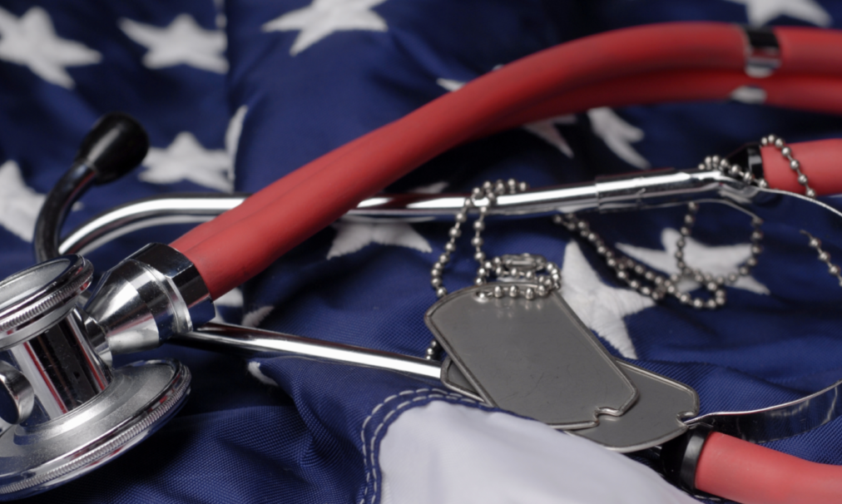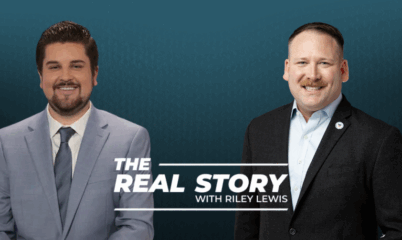
The VA is deliberately trying to stifle community care every step of the way – but there is hope
Recently, veterans health care has been front and center in the news with passage of the PACT Act. But in the conversation about covering care for toxic exposure we’re missing answers to a vital question – how is the Department of Veterans Affairs going to handle the influx of veterans with serious health problems?
Wait times at the VA are already long, and on its current course the VA is doing more to worsen the wait times than alleviate them.
In June, VA Secretary Denis McDonough gave testimony before Congress and suggested scrapping progress in giving veterans more access to care outside the VA by changing the access standards under the VA MISSION Act.
“Care overall, as you have seen in the budget, is growing. Care in the community as a portion of that is growing,” McDonough stated. “My hunch is that we should change access standards.”
McDonough was referring to the increasing number of veterans utilizing community care, citing an increasing amount of demand for community care.
What’s especially disturbing about this statement is the secretary is seemingly refusing to see the increase as a signal of the lack of trust and quality of care a veteran gets from the VA or that more rural veterans are now able to be seen more conveniently and readily by going to get care in their own communities. He is refusing to acknowledge that community care is working.
Instead, veterans getting care outside the VA is seen as a burden. Rather than take a hint from veterans or attempt to fix quality and access internally to compete for veterans, this administration’s solution is to tighten the reins and keep veterans confined to the VA system.
Delayed care spells disaster for vets
The ability to access community care when the VA can’t provide timely care, or just when a veteran wants to make that choice, is reassuring to many who are afraid of getting lost in a bureaucratic system.
But at the VA, the security of the department comes at the cost of delays in care, extended wait times, and the hundreds of miles veterans must travel to get the care they need.
Since the VA MISSION Act was signed into law, the VA has been attempting to set up roadblocks to community care. MISSION was paused at the onset of the COVID-19 pandemic, the MISSION Act page – a crucial hub of information for veterans – has been taken down from the VA’s website, the Office of Community Care shut down, doctor’s care recommendations have been overruled by administrative staff, and wait time manipulation continues to keep veterans out of community care.
These delays and obstacles are already hurting and killing veterans.
A recent study found that among those reporting delayed care, 57 percent said they experienced negative health consequences. A veteran in Atlanta experienced the consequences of delayed care, dying after delays in getting a needed a colonoscopy.
These aren’t just statistics and one-off tragic stories, they are part of a pattern of disregard and mistreatment of veterans at the hands of the VA bureaucracy, allowed by an administration without the political will or courage to stop it.
More money won’t solve the VA’s problems; reforms will
The VA does have a spending problem; there is no denying that. The department’s budget has skyrocketed in recent decades, though interestingly the number of veteran patients the VA serves has decreased. But even as the administration calls for more VA funds and says there isn’t enough to administer community care, it and Congress refuse to take necessary steps to stop waste by streamlining facilities and offerings.
What’s more, the VA’s budget request for 2023 shows the overall medical care budget has grown at a rate higher than that of the community care budget, 21.9 percent and 21.5 percent respectively.
The VA claiming community care access standards must be changed because they don’t have the budget to maintain them is purely self-interest and self-preservation.
Instead of punishing veterans by denying them timely and close community care, Congress and the VA should empower veterans with more options. For Congress’s part, they can start with passing the Guaranteeing Healthcare Access to Personnel Who Served (GHAPS) Act.
The GHAPS Act would take current community care access standards and codify them into law, thereby guaranteeing veterans certainty in when and where they can seek medical care. If the GHAPS Act does not become law, veterans will continue to be stuck in limbo with mixed messages about what care is available to them. It is time for VA and Secretary McDonough to take to heart what General Omar Bradley said and practiced when he ran the VA. “We are dealing with [veterans], not procedures; with their problems, not ours”.
If care and services at the VA are going to expand, the VA needs a sustainable plan for facilitating that care. Yes, even if care comes from the community. The VA has a responsibility to make the VA MISSION Act and community care work, not find ways to subvert it.
Darin Selnick is a senior advisor for Concerned Veterans for America and an Air Force veteran. He served as veterans affairs adviser on President Donald Trump’s Domestic Policy Council and as a senior advisor to the VA secretary.




